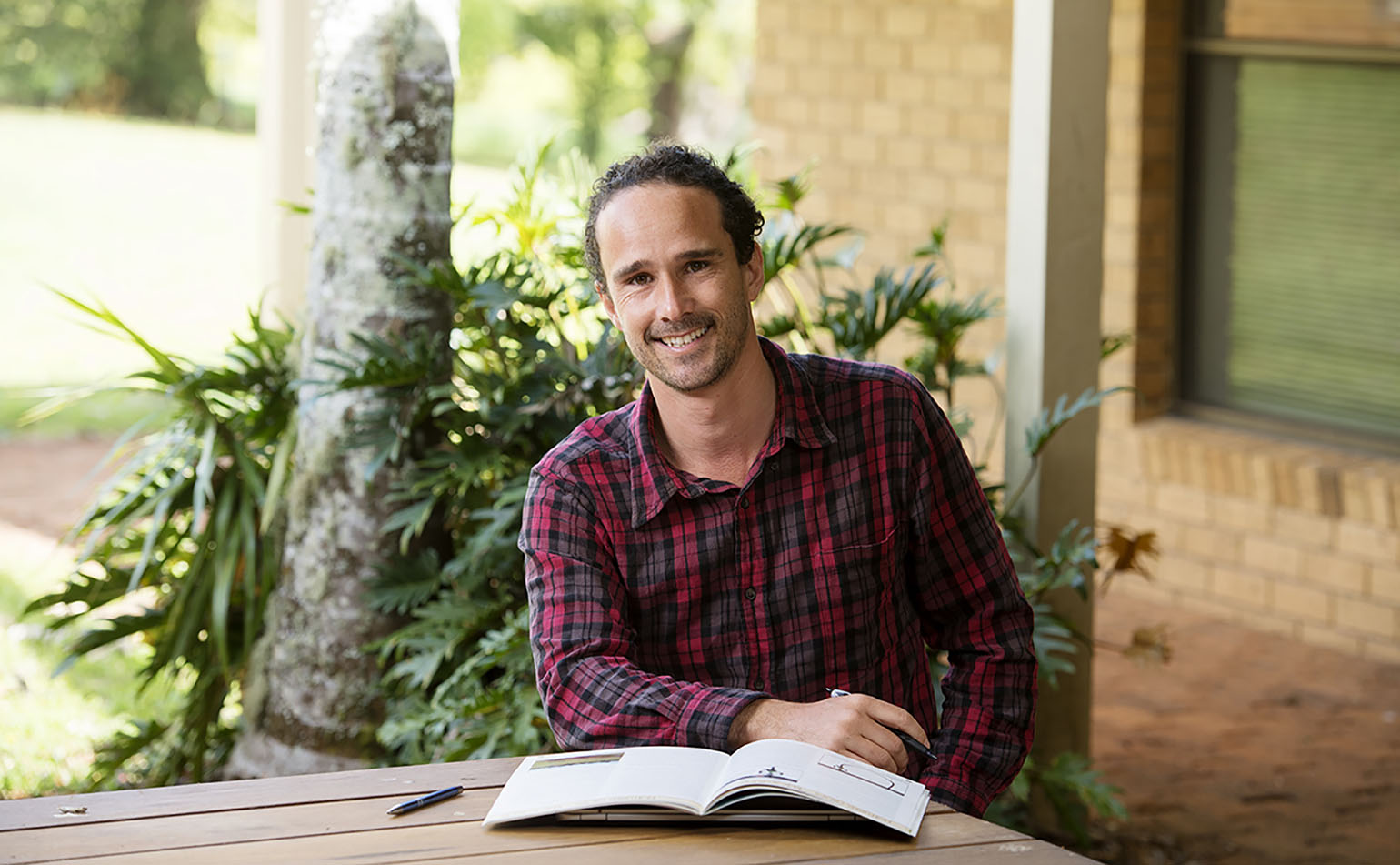Soil CRC PhD student Mathew Alexanderson doesn’t consider himself a traditional academic. As an avid traveller and a passionate environmental advocate, he spent almost a decade exploring the world before deciding to give university a go. Mathew enrolled in an Environmental Science degree at Southern Cross University, but his overseas adventures didn’t end there.
“Interestingly, it was my undergraduate degree that led to more travel, this time living and working on a remote island in Indonesia for two and a half years,” he said.
It was here, on Simeulue Island, that Mathew completed the final year of his degree and founded and developed a conservation program called Volunteer for Aceh’s Sea Turtles, better known as VAST.
“VAST focused on protecting endangered sea turtle species and their habitats in Indonesia, with the support of volunteers and ecotourists,” he said. Southern Cross University recognised Mathew’s passion project by awarding him with an Environmental Champion Award in 2018.
It’s not surprising to learn that Mathew’s subsequent Honours project involved a triple bottom-line analysis of ecotourism projects in the developing world against the outcomes of the United Nation’s Sustainable Development Goals.
Mathew then harnessed his passion and shifted focus to look at how we can best manage our agricultural landscapes in Australia, embarking on a PhD with the Soil CRC and Southern Cross University in 2019.
His PhD research is linked to the Soil CRC’s ‘Surveying farm practices’ project, which wrapped up the first phase last year. He worked with supervisor and project leader, Dr Hanabeth Luke (Southern Cross University), to develop rural landholder surveys and write up the findings.
“My research centres on regenerative agriculture in Australia, exploring its nuances through survey research,” he explained. “I integrated questions into the Soil CRC’s social benchmarking study and conducted an additional online survey through regenerative agriculture organisations.”
“The study categorises five stakeholder groups, from conventional to regenerative farmers and consultants, aiming to understand the drivers, opportunities, and limitations of regenerative agriculture.”
Key findings highlight the impact of education levels and beliefs in human-caused climate change and on farming groups. The research delves into cross-phase comparisons, uncovering similarities in knowledge pathways between regenerative farmers and consultants. It also identifies broader limitations hindering investment in regenerative agriculture, suggesting innovative strategies for mindset and practice shifts.
“Ultimately, this research contributes to the growing body of knowledge on regenerative agriculture, offering insights for education, knowledge dissemination, and resilience-building in a changing climate,” he said.
Mathew said his PhD experience has been immensely rewarding on several fronts.
“The combination of intellectual autonomy, collaborative endeavours, and the potential for real-world impact has made my PhD journey in regenerative agriculture very enjoyable.
“I’ve had fantastic supervision by Dr Hanabeth Luke and Associate Professor David Lloyd of Southern Cross University, while the network of the Soil CRC has opened up both current and future research opportunities.”
Mathew submitted his PhD in December last year and is now embarking on a post-doctoral position with Dr Luke, focusing on the next round of the Soil CRC social benchmarking surveys.
“I’m also continuing to work on a regenerative agriculture mentoring program (RAMP) that I co-developed with funding from the NSW Environmental Trust.”
When he’s not striving to make a difference through his work or chasing waves in Indonesia, Mathew enjoys learning new things and challenging himself.
“Each year I try and learn a new skill—making surfboards and furniture, resin art, leatherwork, and even oil painting,” he enthused.
Right now, he is renovating a house, getting hands-on with kitchen installation and plastering. Sounds like a walk in the park for this seasoned learner.
Find out more
Read Mathew’s publications:
- Alexanderson, M.S., Luke, H. & Lloyd, D.J. (2023). Regenerative farming as climate action. Journal of Environmental Management, 347(1):119063. DOI: 10.1016/j.jenvman.2023.119063

